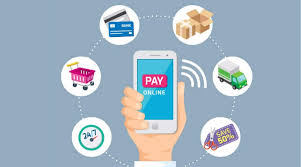B2B Payment Gateways: Essentials And Roadblocks
B2B Payment Gateways: Essentials and Roadblocks
B2B payment gateways are an essential component of any business-to-business (B2B) transaction. These gateways allow companies to process payments from other businesses, making it easy for them to conduct transactions and manage their finances. However, there are also a number of roadblocks that can make it difficult for businesses to implement and use B2B payment gateways. In this blog post, we will take a look at the essentials of B2B payment gateways and some of the common roadblocks that businesses may encounter when using them.
 |
| best payment gateway malaysia |
Essentials of B2B Payment Gateways
The most important aspect of a B2B payment gateway is its ability to securely process payments. This means that the gateway should be able to encrypt sensitive information, such as credit card numbers, to protect against fraud and hacking. Additionally, the gateway should be able to handle a high volume of transactions and handle different types of payments, such as credit card, ACH, and wire transfers.
Another essential aspect of a B2B payment gateway is its ability to integrate with other systems. This includes the ability to connect with accounting software, ERP systems, and other business applications. This allows businesses to automate their financial processes and streamline their operations.
Roadblocks to Using B2B Payment Gateways
One of the most common roadblocks that businesses encounter when using B2B payment gateways is the cost. Some gateways can be quite expensive, especially for small businesses that may not have the budget to cover the costs. Additionally, many gateways charge additional fees for features such as fraud detection and chargebacks.
Another roadblock is the complexity of setting up and using a B2B payment gateway. Some gateways can be difficult to configure and use, which can make it difficult for businesses to get up and running. Additionally, many gateways require businesses to have a certain level of technical expertise, which can be a barrier for some companies.
Another roadblock is the compliance and security requirements. Payment gateways are regulated to ensure the security of transactions, businesses are required to comply with a range of security and data privacy standards, such as PCI-DSS, which can be difficult and costly to implement.
Conclusion
B2B payment gateways are an essential component of any business-to-business transaction, however, it's important to consider the cost, complexity, and compliance requirements when choosing a gateway. Businesses should carefully evaluate their needs and budget before selecting a payment gateway and ensure that they have the necessary technical expertise to set up and use the gateway effectively. By understanding the essentials and roadblocks of B2B payment gateways, businesses can make informed decisions and ensure that they are able to securely and efficiently process payments from other businesses.

.jpg)

Comments
Post a Comment